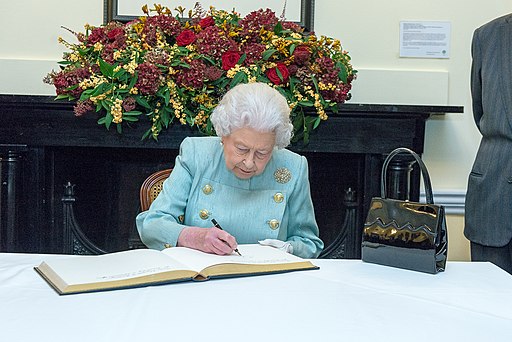23 January 2020 | UK NEWS
Westminster sources report that the Government’s EU Withdrawal Agreement Bill received Royal Assent, the final stage of the process to sign it into UK law, at around 2:30pm today, making it now an official Act of Parliament. The Bill had previously cleared all Parliamentary stages last night, with the House of Lords accepting the Commons overturning its 5 amendments as part of the ‘ping-pong’ process when the two Houses do not agree immediately on a piece of legislation. In practice, there was never any likelihood of this not occurring.
The procedure itself is, of course, a formality, given that the Queen will never fail to give Royal Assent for a Bill that has been passed by both Houses of Parliament, but it marks an important and symbolic final step in the process. It was announced in a short statement to the Commons by Deputy Speaker Nigel Evans, to cheers from some MPs, as can be seen here:
With the European Union (Withdrawal Agreement) Act 2020 now fully ratified by the UK Parliament, the only remaining step to ratify it on the EU side is a vote on the matter in the European Parliament, which is currently expected next Wednesday. This, too, is essentially a mere formality, given that the Withdrawal Agreement itself is already due to be signed at a higher level within the EU and by the UK Prime Minister.
Responding to these developments on behalf of the SNP, its Leader in the Commons, Mr Ian Blackford, said: “This is a constitutional crisis. We are faced with a situation which is completely unprecedented when the government in Edinburgh, Belfast and in Cardiff has not given consent to this Act of Parliament, and that completely contravenes the devolution settlement that made it clear that the consent of the devolved administrations had to be given in Bills of Parliament that become Acts of Parliament that involve the devolved administrations.”
Mr Blackford was referring to the fact that the Scottish, Welsh and Northern Irish devolved governments had all previously voted down the Withdrawal Agreement Bill in a symbolic act of defiance – their votes have no power to bind the overarching UK Parliament and Government in matters of foreign affairs, of which they were all very well aware at the time.
He added: “We find ourselves here today, that our Parliament has been ignored, our government has been ignored and, against the expressed wishes of the people of Scotland that voted in the referendum and reaffirmed the right of the people of Scotland to determine their own destiny, that that has been ignored.”
He continued by asking what he had to do “to make sure that that mandate that the Scottish government has from the people of Scotland to have an independence referendum on our future, to make sure that Scotland has that right to be a European country, to be an independent country. And there’s a very clear message, I must say, Mr Speaker, that has been delivered from this House – that the rights of the people of Scotland are to be shut down and we will have no part of it.”
To anyone familiar with parliamentary debates and Prime Minister’s Questions over the past couple of years, Mr Blackford’s remarks today will be, to put it mildly, unsurprising.
Yesterday and today’s proceedings mark the end of the parliamentary debate around the manner of Britain’s withdrawal from the EU, save for any subsequent questions asked about the nature and progress of the subsequent Future Relationship negotiations between the UK and the EU. These are, of course, solely a matter for the Executive to decide upon – a nuance perhaps ‘forgotten’ by certain figures who no longer sit in the House – and the size of the new Government’s majority will ensure a return to this convention. However, it is perfectly proper for Parliament to scrutinise the Government and hold it to account for any decisions that it takes during this process.
We will bring you further developments in the course of these negotiations once they commence.

























